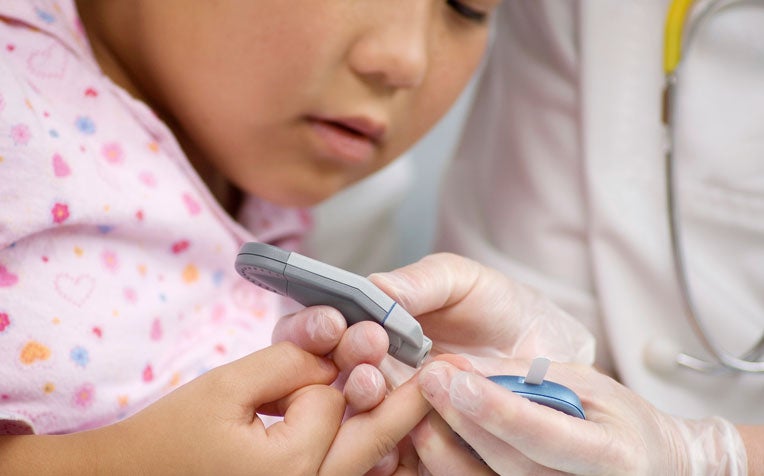
Diabetes does not just affect adults. Juvenile diabetes can also occur in children and teenagers.
Ms Evelyn Boon from the Department of Psychiatry at Singapore General Hospital (SGH), a member of the SingHealth group, shares the emotional challenges for parents of children with diabetes tips to cope with them.
As a parent, what was your reaction when you first received the news that your child has diabetes? You probably experienced a whirlwind of emotions, followed by the struggle to re-compose yourself. You then had to digest all the information thrown your way regarding how you should care for your child. Chances are, it was a trying experience for you.
If the child is a toddler:
- Trying to identify what the child is feeling as he/she may not have the vocabulary to express himself.
- Resisting being overprotective and encouraging the ‘sick’ role in the child.
- Reconciling the mixed emotions about ‘inflicting pain’ (due to needles) that can be in the way of insulin injections.
If the child is of school-going age:
- Dealing with the child comparing himself/herself with peers who don’t have diabetes, especially when they get introduced to the world of sweets, cakes, chocolates and fast foods. It is only natural for the child to want to eat like his/her friends.
- Dealing with the child when he/she starts to realise that he/she’s different from his peers – being different may not be a good thing in the child’s mind. Children want to be ‘normal’ and fit in.
- Coping with the child’s increasing resentment towards diabetes, medication, dietary restraints and even parental restraints.
If the child is an adolescent:
- It is a herculean challenge to manage teenage angst, raging hormones and diabetes. Needless to say, it will be trying for you, your child and your family. Differentiating between ‘normal’ adolescent mood swings and low blood sugar mood swings is hard.
- Dealing with rebellion against the diabetes self-care regime. To a teenager, this will mean restrictions, a threat to their need for independence and spontaneity.
- Struggling with when and how much autonomy over diabetes care to hand over to the adolescent.
These are only some of the challenges you will encounter in dealing with a child with diabetes. There is no short and simple solution to these challenges. Don’t hesitate to get help from your child’s medical team and even get a referral to see a mental health professional.
Helpful tips for parents of children with diabetes
Diabetes may mean different things to children at different ages and stages of their development. Depending on what age children are diagnosed, the emotional intensity of their reaction may vary.
Here are some steps you could take to help both your child and yourself manage the diabetes better:
- Dealing with your own emotions: You need to work on your emotional reaction to the diagnosis.
- Handling your child’s distress: It is a difficult task to give injections to a small child. It is therefore important for you to be strong and calm, and to do the necessary procedures gently and firmly. It is also essential to help children deal with their anger and frustrations.
- Learning to “partialise”: Learn to prioritise and share the responsibilities with your spouse or other family members.
- Remember to take care of your own needs: It is very important that you maintain a meaningful relationship with your spouse and friends. This also provides you with a good support system to lean on.
- Accept the food challenge: Food and meal times can be a challenge. You can provide children with a choice of foods to give them a feeling of control over what they eat. It’s best to have the same menu for the entire family.
- Accepting the diagnosis: You do need to accept the diagnosis. Children are sensitive and will pick up any resentment, anger or acceptance that their parents feel.
* modified from Six Secrets of Successful Parenting by Debbie Lloyd, Caring for the Diabetic Soul, American Diabetes Association
Apart from these six tips, there are also other considerations for you as a parent of a child with diabetes. Notice that I didn’t say “diabetic” child? That was intentional as one of the other ways of coping is to avoid any label. Your child is more than the illness. He or she is a person with diabetes. The condition is merely a part of them that requires more attention.
Coping with diabetes is not an easy task at all. As a parent, juggling the demands of a diabetes regimen with the demands of your child and your family is a challenging feat. So remember to take good care of yourself, your relationships and your child.
Ref: T12
Contributed by














 Get it on Google Play
Get it on Google Play